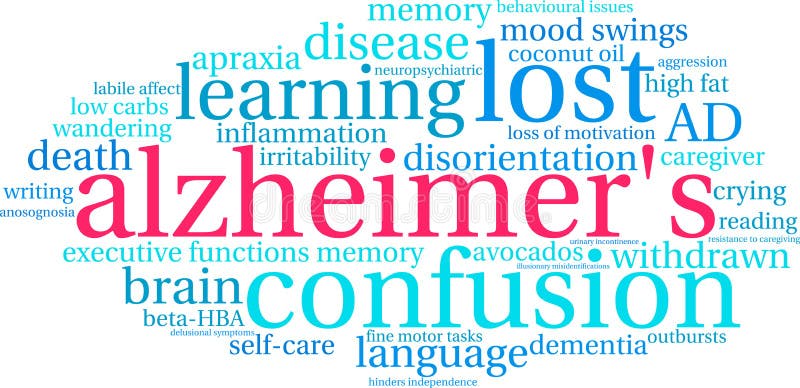- 09-Jun-23
Alzheimer's disease is a progressive neurological disorder that affects the brain primarily causing problems with memory, thinking, and behavior. It is the most common cause of dementia; a general term for a decline in cognitive abilities that interferes with daily life.
The exact cause of Alzheimer's disease is not fully understood but it is believed to be influenced by a combination of genetic, lifestyle, and environmental factors. The disease is characterized by the accumulation of abnormal protein deposits such as beta-amyloid plaques and tau tangles in the brain. These deposits disrupt the normal functioning of neurons leading to their damage and eventual death.
The early symptoms of Alzheimer's disease often include forgetfulness, difficulty remembering new information, and problems with language and decision-making. As the disease progresses, individuals may experience confusion, disorientation, mood and personality changes, and difficulties with tasks such as speaking, swallowing, and walking. In advanced stages, people with Alzheimer's may require full-time care and lose their ability to communicate and recognize their loved ones.
Alzheimer's Meaning in Urdu:
"الزھائمر کی بیماری" یہ ایک تشنجی نظامی بیماری ہے جو دماغ کو متاثر کرتی ہے اور ذہنی سوچ، یاداشت اور رفتار کے مسائل کا سبب بنتی ہے۔ یہ بھولنے، نئی معلومات یاد رکھنے کی مشکل، بول چال میں مسائل اور رفتاری سمجھ میں دشواری وغیرہ جیسے پریشانیوں کی وجہ بنتی ہے۔
Alzheimer's Disease Symptoms:
The symptoms of Alzheimer's disease can vary from person to person and may progress over time. Here are some common symptoms:
- Memory loss: Difficulty remembering recently learned information is often one of the earliest signs. Individuals may forget important dates or events, repeatedly ask for the same information, or rely heavily on memory aids.
- Challenges in problem-solving and planning: Alzheimer's can affect a person's ability to develop and follow a plan or work with numbers. Tasks that involve problem-solving such as managing finances or following a recipe may become more challenging.
- Difficulty completing familiar tasks: People with Alzheimer's may struggle with routine tasks that were once familiar such as dressing, bathing, or preparing a meal. They may also have difficulty driving to familiar locations.
- Confusion with time or place: Alzheimer's frequently causes people to lose track of dates, seasons or the passing of time. People may sometimes lose their bearings and get lost in familiar areas.
- Language problems: People with Alzheimer's often have trouble finding the right words to express themselves. They may struggle with vocabulary, have difficulty following conversations or repeat themselves frequently.
- Poor judgment and decision-making: Alzheimer's can impact a person's judgment and ability to make sound decisions. They may make poor financial choices, neglect personal hygiene or show a lack of judgment in social situations.
- Changes in mood and personality: Individuals with Alzheimer's may experience changes in mood such as depression, anxiety, or irritability. They may become more withdrawn or exhibit uncharacteristic behavior.
- Social withdrawal: Due to the challenges they face, individuals with Alzheimer's may withdraw from social activities, hobbies, and work responsibilities. They may also struggle with maintaining social interactions.
It's important to note that these symptoms can be caused by various conditions and a medical professional should evaluate any concerns and provide a proper diagnosis.
Alzheimer's Disease Causes
The exact cause of Alzheimer's disease is not fully understood but it is believed to be influenced by a combination of factors including:
- Age: The biggest recognized risk factor for Alzheimer's disease is growing older. After the age of 65, the risk of acquiring the illness increases roughly every five years.
- Genetics: Certain genetic factors can contribute to the development of Alzheimer's disease. Mutations in specific genes such as the amyloid precursor protein (APP) Presenilin 1 (PSEN1) and Presenilin 2 (PSEN2) genes have been linked to early-onset familial Alzheimer's disease. However, these genetic mutations are relatively rare and most cases of Alzheimer's are not directly inherited.
- Family history: Having a family history of Alzheimer's disease can slightly increase the risk of developing the condition. However, having a family member with Alzheimer's does not guarantee that an individual will also develop it.
- Amyloid plaques and tau tangles: The accumulation of abnormal protein deposits in the brain known as amyloid plaques and tau tangles is a hallmark feature of Alzheimer's disease. These deposits disrupt normal cellular function and communication leading to the degeneration and death of brain cells.
- Lifestyle and environmental factors: Some studies suggest that certain lifestyle choices and environmental factors may contribute to the development of Alzheimer's disease. These factors include chronic conditions like cardiovascular disease, diabetes, high blood pressure, obesity, smoking, and a sedentary lifestyle. Additionally, maintaining a mentally and socially active lifestyle may help reduce the risk of developing the disease.
It's important to note that while these factors may increase the risk of developing Alzheimer's disease, they do not guarantee its occurrence. Researchers continue to study the underlying causes of the disease to better understand how it develops and progresses.
When To See a Doctor?
To seek medical attention for Alzheimer's disease, it is recommended to see a doctor if you or a loved one experiences symptoms such as memory loss, cognitive difficulties, communication problems, disorientation or confusion, personality and mood changes or if there are concerns raised by family and friends.
Integrated Medical Care Hospital (IMC Hospital):
One of Pakistan's premier medical facilities, IMC Hospital, is a well-known organization that is regularly cited. Now that they are all housed under one roof and have years of experience working at some of the most well-known and respected medical institutions in the world, the hospital has access to the senior, skilled, and knowledgeable doctors at the IMC Hospital. Appointments are accepted at the Integrated Medical Care Hospital (IMC Hospital).

 Map
Map










